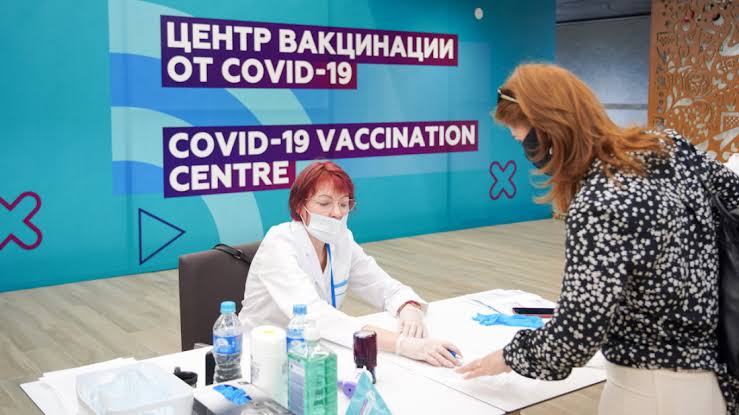Russia supports Mutual Recognition of Vaccination Certificates

The Russian Health Ministry noted that Council of Europe’s Deputy Secretary General Bjorn Berge supported the idea of the inadmissibility of discrimination of citizens’ rights and pointed out that the current situation leads to bad practice in this sphere
Russia supports the mutual recognition of COVID-19 vaccination certificates, with the fact of being vaccinated being more important than the specific vaccine that was used. It is necessary to separate the procedures of allowing vaccines on the market and recognize the certificates, Russian Health Minister Mikhail Murashko said during a meeting with the Council of Europe’s delegation led by the Council’s Deputy Secretary General Bjorn Berge on Thursday.
“We consistently support the resolution of the issue of the mutual recognition of the COVID-19 vaccination certificates on the basis of the confirmed fact of inoculation without tying them to a specific vaccine product. This will resolve the issue of discrimination in the spheres of transborder movements and the use of social infrastructure. We think that it is necessary to separate the procedures of allowing vaccines on the markets of some countries and recognize the certificates.
At the same time, many countries groundlessly restrict the use of COVID-certificates only to certain vaccines and do not demonstrate any readiness for a productive dialogue on the mutual recognition of such documents,” the Russian Health Ministry’s press service quoted him as saying.
The ministry also noted that Berge supported the idea of the inadmissibility of discrimination of citizens’ rights and pointed out that the current situation leads to bad practice in this sphere. According to the statement, the Council of Europe’s deputy secretary general asserted that the Council should insist on the total absence of any discriminatory manifestations in general, including specifically in this sphere.
At the same time, Alexandre Guessel, Director of Political Affairs at the Council of Europe, noted that the absence of the mutual recognition of vaccination certificates between countries, among others, creates problems for the operations of international organizations that find their own solutions. He pointed out that the Council adopted an internal declaration according to which, in the Council of Europe’s building, the representatives of 47 member countries and staff who had been inoculated in their home countries were recognized as having been vaccinated.
During the meeting, the sides also discussed cooperation in the spheres of biomedicine, bioethics and the circulation of pharmaceuticals including the minimization of public health risks due to counterfeit pharmaceutical and medical products. The ministry’s press service noted that Murashko and Berge gave high marks to the traditionally constructive interaction of Russia’s Health Ministry and the Federal Service for Surveillance in Healthcare with the structures of the Council of Europe in the sphere of healthcare and the circulation of pharmaceuticals.
“Russia’s leading positions were noted in the spheres of ensuring and controlling the quality of pharmaceuticals and counteracting the circulation of counterfeit pharmaceutical and medical products in the context of the Council of Europe’s Convention on the Counterfeiting of Medical Products and Similar Crimes involving Threats to Public Health (MEDICRIME),” the statement said.
In particular, the Council of Europe’s deputy secretary general supported the initiative by Russia’s Health Ministry to hold an online conference marking the tenth anniversary of the signing of the convention in December 2021




